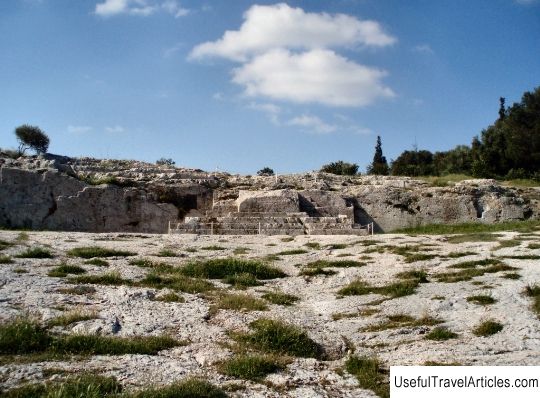Areopagus in Greece, resort of Athens
Rating: 8,0/10 (260 votes)  The Areopagus in Ancient Athens was an organ of power located on a hill where, according to legend, Ares was tried for shedding the blood of Poseidon's son. According to one version, the hill got its name in honor of the Amazons, who set up camp on the hill during the siege of Athens. The Areopagus as a council of elders emerged in the era of the tribal system, and consisted of life members, who were gradually replenished from former archons. The candidates were elected and scheduled by the Areopagus. He also possessed broad judicial, political, religious and controlling power. Originally, the Areopagus was a stronghold of the aristocracy, later - – oligarchy. Its main functions were considered to be the monitoring of the observance of all laws and trials in cases of murder. The limitation of the power of the Areopagus happened with the development of slave-owning democracy. The reform of Ephialtos eliminated a significant portion of the influence and political power of the Areopagus. However, he retained the right to observe laws and trials in cases related to religious and criminal offenses. Until the end of ancient Athens, the Areopagus remained the most authoritative judicial and governmental body in Athens.    We also recommend reading Temple of Hephaestus in Greece, resort of Athens Topic: Areopagus in Greece, resort of Athens. |




